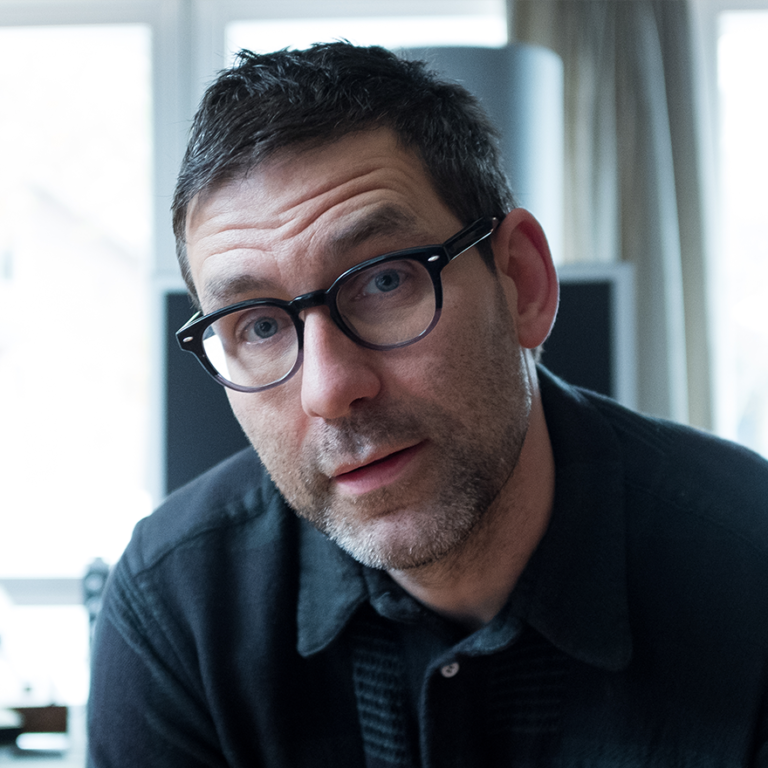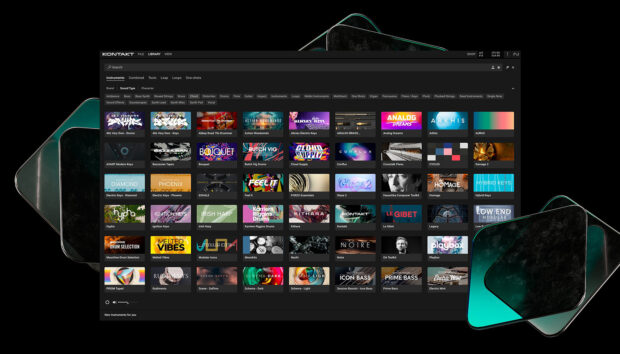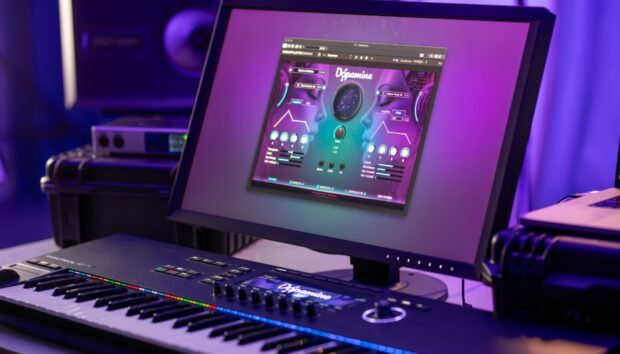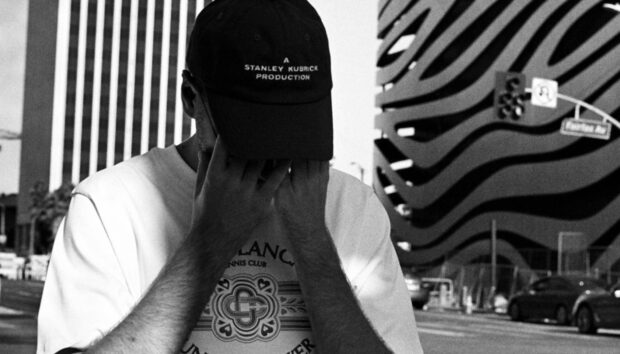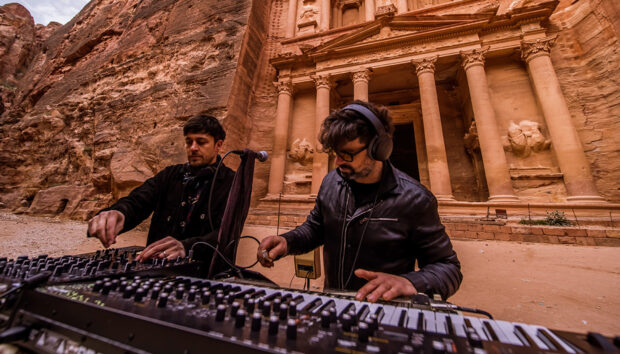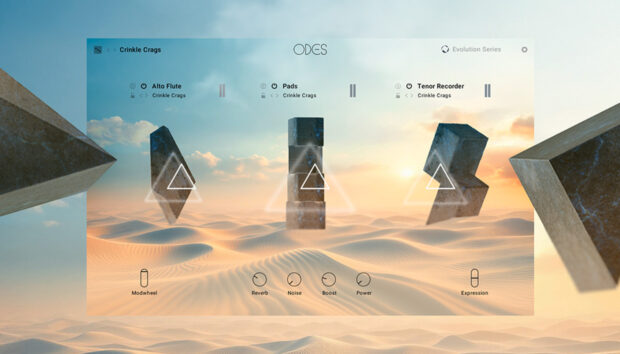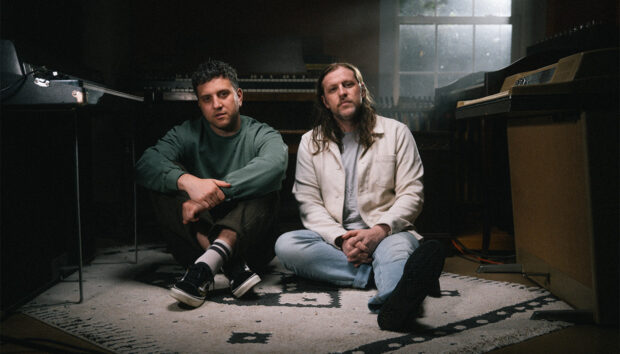Improvised live performer and technologist Tim Exile speaks to Jamie Lidell about creative workflow, lo-fi methods and modern stagecraft.
The first time I saw you perform that was the first time that I’d really seen electronics and personality married together. Musically and technologically, that’s basically inspired most of my career.
It came about as a crossroads moment when I’d left England to go to Berlin and had run out of money. I’d been in that circle of techno producers who were all very competent. Cristian Vogel, Neil Landstrumm, they were all experts with their boxes. They all could run rings around me in terms of putting together a live set.
I really had to think, “What am I?” I thought, “I sing! I use my voice and I know electronics, so how can I put those two things together?” A moment of mild desperation was the mother of invention. I saw the bank account dwindling and thought, “I have to somehow go out and play shows but how do I do this, and compete?”
Matthew Herbert was the guy who inspired me, because he was making music with really basic BOSS Delays and blowing minds. It was 100% live. I knew I wanted to a taste of that buzz. Plus he looked like he was having an amazing time.
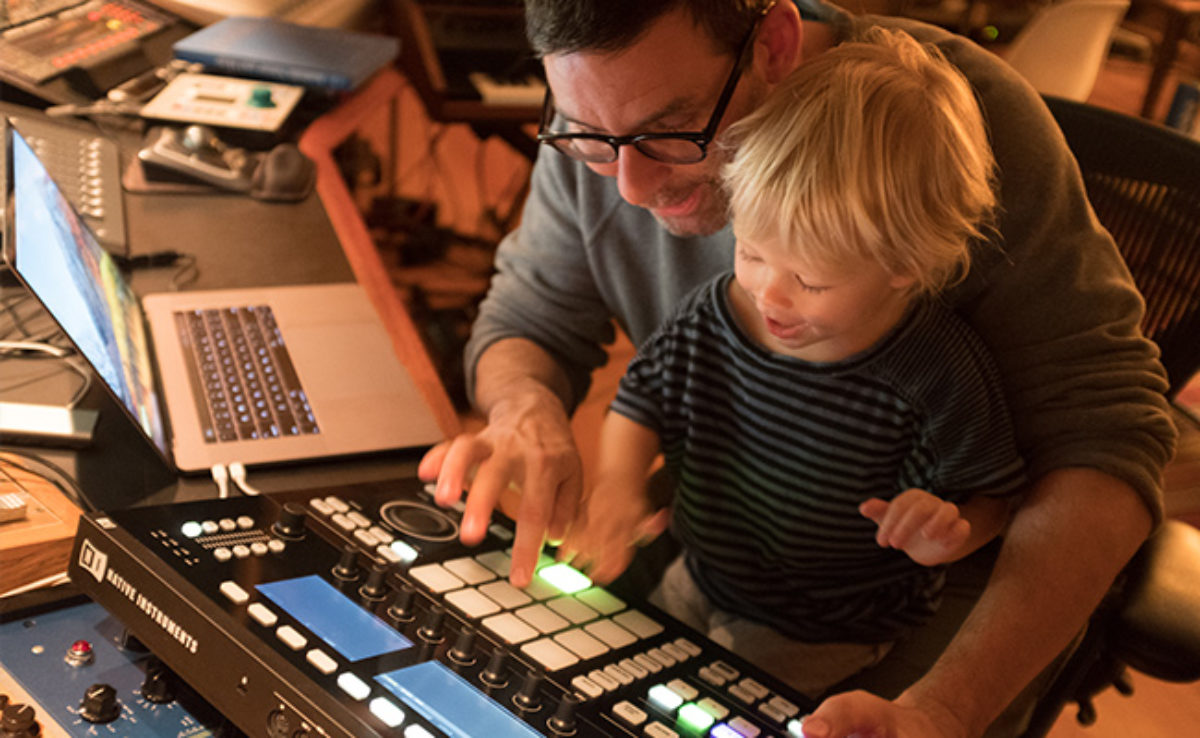
You went to Berlin, you had this time where I guess your costs were lower, you didn’t have so much pressure, so you could freak out and get this kind of crazy.
Perhaps I was the proto Ed Sheeran? It’s funny to see where looping has gone, because no one even knows what we were up to back in the day. It’s like a hidden legacy.
It was a strange thing. I remember how it was so novel in those days.
Ed Sheeran has done it…I think he’s the only guy who has really put it at the centre of what he does and has been really successful.
He is really good at it. He’s amazing at it, actually. I hear him do it and I’m like, “This guy is fucking on point”. He’s taken a lot of risks. He ticks the box for me, because he’s doing a really brave thing still. I mean he played Wembley on his own, and that’s–well… It’s nuts, man. I imagine he was just shitting his pants, but I mean he just nailed it.
When I heard what you’d come up with inside Reaktor, I didn’t even know how that was even possible. I was just content to put stuff through a mixer and add some effects, but you were thinking about what was next. You’ve turned the voice and these sound sources into malleable things, and that’s the Holy Grail, because everyone else is trying to catch ideas and get inspiration, often with indirect methods that take you out of the moment. Half the battle is being able to change a sound source into another thing quickly…just knowing that layers of processing can do that much blew me away. The sound of Reaktor is just so wildly superior to what I was doing- this triumphant, glossy, really 3D sound.
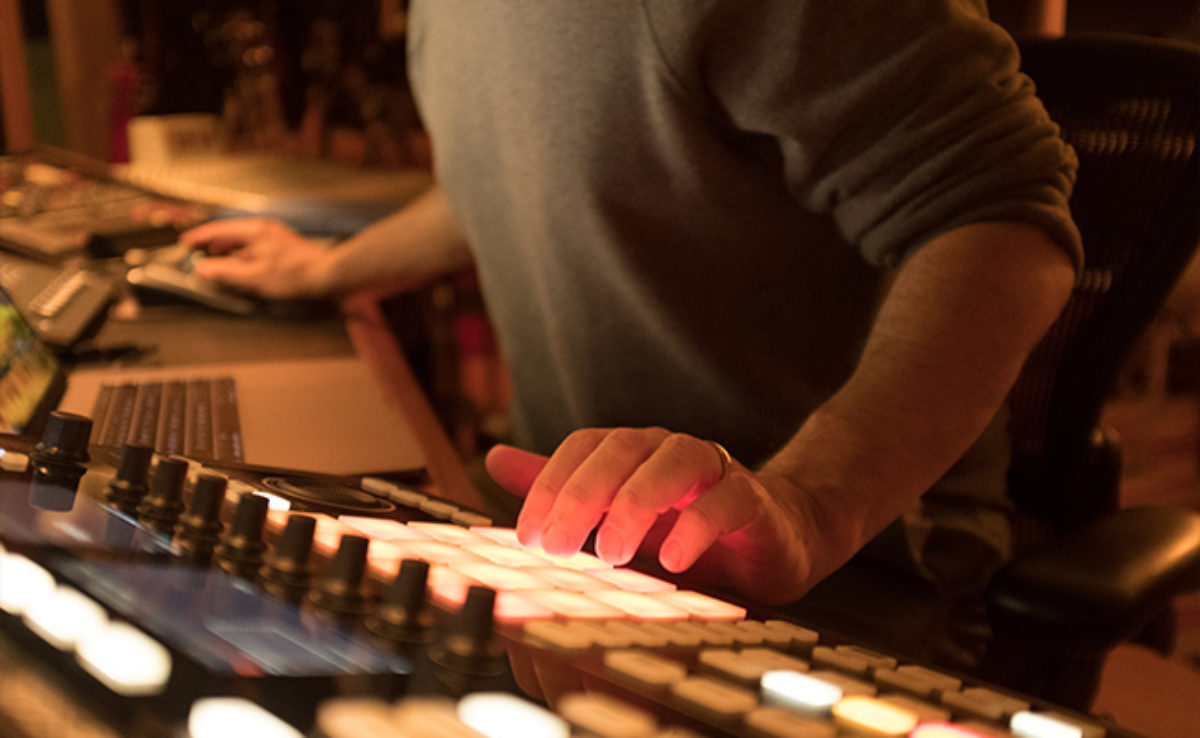
You can really get your paws on it.
It still blows people’s minds, man. I have the old Flow machine setup permanently on a computer in my studio and I had this guy over from the Nashvile band Basecamp – and they know how to get workflows out of the box, in the box etc. – and I showed him the looper and he was literally stunned. He was just like, “Wow, this just changes everything”. I was like, “Well yes, This thing has been around for a long time”.
We’re always waiting for the next pioneers to come along and shake us from our dogmatic slumbers so it’s exciting when people feel like they have this bright, shooting star kind of thing.
It’s important because it comes back around to how I feel about music making and how I’m excited or not about doing it. Doing interviews and talking about processes with people has been really enlightening. For example, I went to interview a guy called Shawn Everett recently in LA. He is an engineer that I have admired from afar for some time. He worked on the Alabama Shakes record which I thought sounded like a new standard in recording. He had all the lows, he had all of the dimension of a modern mix, but managed to frame a solid R&B sound, whilst reinventing it. Basically on my last record I was just trying to copy a lot of his sounds! I was just trying to get close to it sonically.
It became the benchmark sound to me.
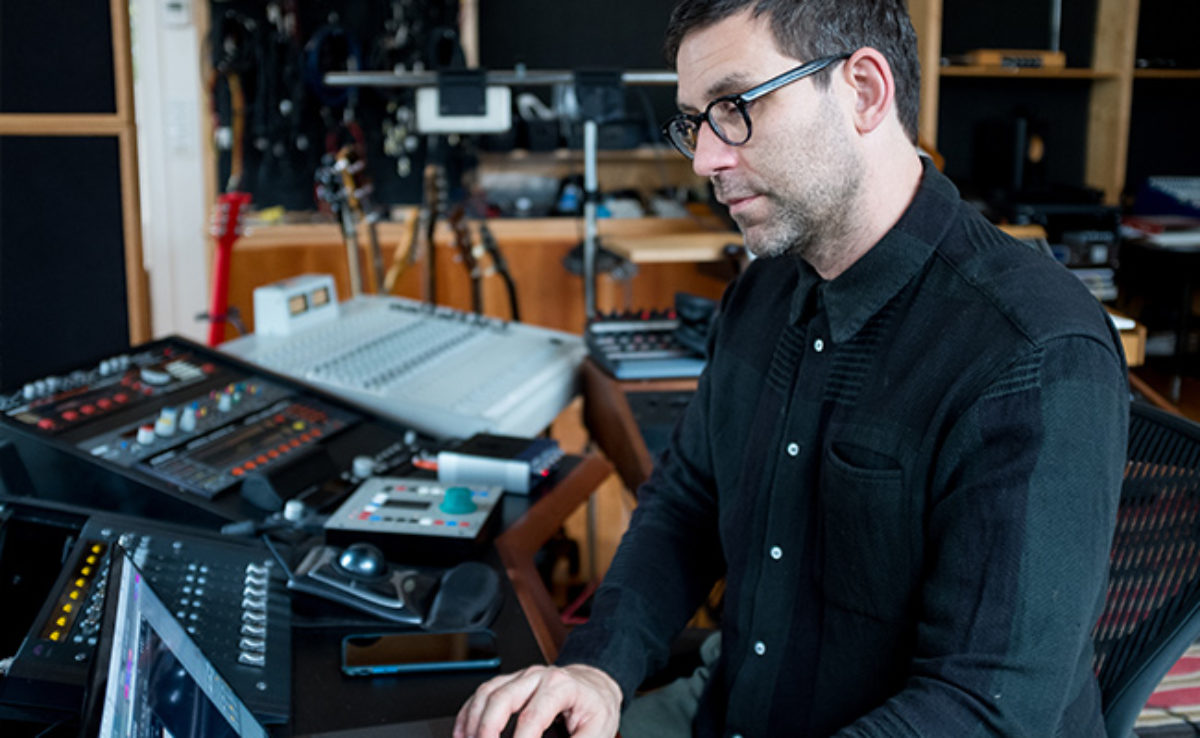
When I finally met him he was this super welcoming, wild looking dude in his lab, surrounded by all kinds of lo-fi goodies amongst all the hi-fi stuff, and a really bizarre, homemade workflow. He doesn’t care how the job is going to get done, he’s more than happy to throw lead vocal down a $20 guitar pedal. Just a no-rules kind of approach. He turned me on to this weird Korg four-track machine that I now own, and I’m running everything through.
That’s what happens. You go into an interview situation with someone, and you come away with so many answers to little questions. I think a lot of electronic musicians are quite lonely people. We spend hours in the lab cooking things up but we don’t really ever talk. Podcasting has been this great way for me to just be in a room with someone I like.
The flip side of the coin is it’s lonely but on the other side, you get all these people with their mad labs. They’ll be using off the shelf technology, but then once you scratch beneath the surface you’ve got people running things through old Korg four-tracks and cheap guitar pedals and broken stuff or even stuff they’ve made themselves. That’s where the hallmarks of soul–
Of that unique identity yes! It’s so funny. I think a lot about it, when I did the interview with Pat Carney from The Black Keys, they just started out with all this cheap, crappy equipment. So they had basic little lights for stage and they had cheap gear. Turns out, that gave them a really cool aesthetic because it was so lo-fi it hit a sound.
If they had started off with really hi-fi stuff, it would have just been really clean and just sort of dull. The urgency of their ideas would have just been lost completely. They probably would have never made it. There’s this amazing quality to lo-fi recordings which I feel I’m going back to appreciating. lo-fi is can be this beautiful thing.
I think it’s like in movie-making where, if you don’t show the gore, the mind is much more liable to make up something horrific than if you show a poor rendition of gore.
Same for lo-fi in that you kind of know there’s something going on but you don’t really know what it is, so your brain imagines it. If you have a fluffy version of a drum kit, maybe in your mind it sounds massive coz’ it’s blown out. It’s not literally sounding massive but it’s sort of grungy and you can’t make it out so you try to make it out. It’s a really cool mental process of filling in from missing parts. Distortion is the best effect there is!
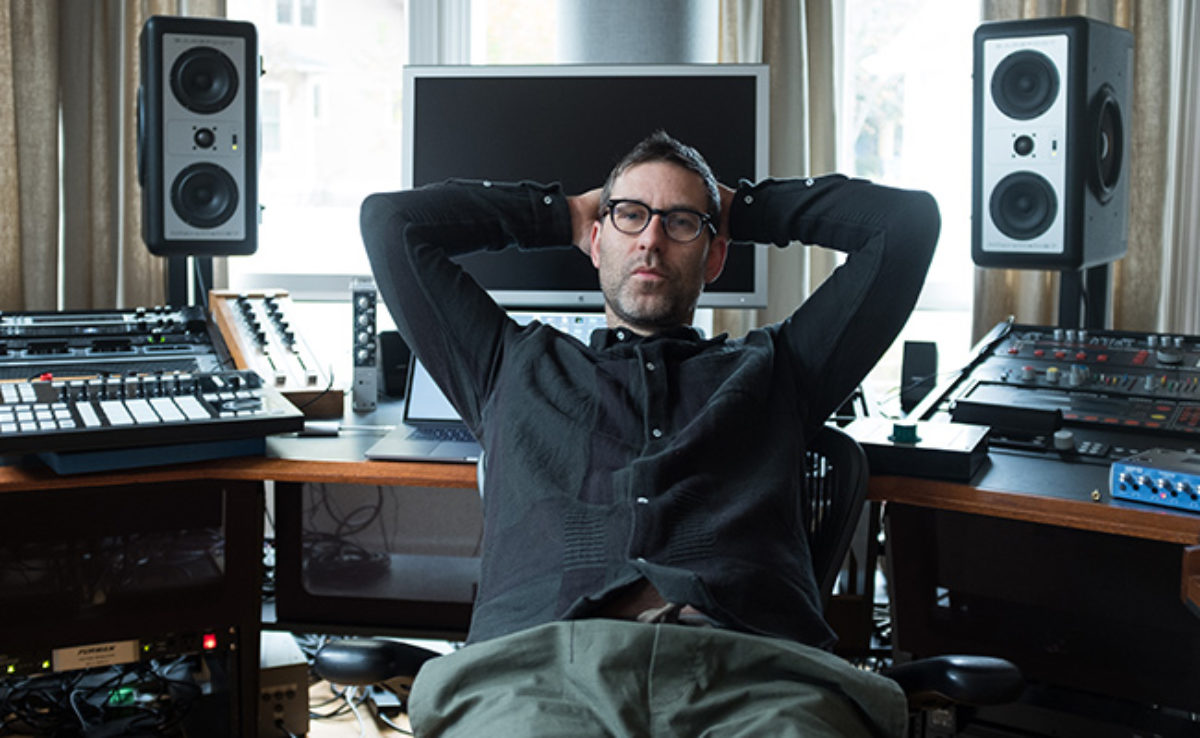
Yes. Again, there’s the flip side of lo-fi, which is that it can… I feel sometimes it can become a substitute for what you might call fine artist, draughtsmanship, basic skills.’
I think there does come a limit. There are certain musical genres, like with shoegaze, if the guitars aren’t covered in effects and drenched in verbs and crazy delays, you’re not shoegaze, are you? You lose the genre, almost.
If you’re a lo-fi musician and suddenly you make a hi-fi record, I think a lot of your fans are going to be like, “I don’t know, they’ve gone commercial”. You’re splitting the camp because a lot of people really like that fuzzy thing and they want their ragged jumper and their torn jeans, and it’s the sonic equivalent. If you, all of a sudden get all sonically suited, then you feel like you’re an office worker or something. You’ve got your money and now you’re a rich twat trailing around with all of your money. Just like anything, music can be classist.
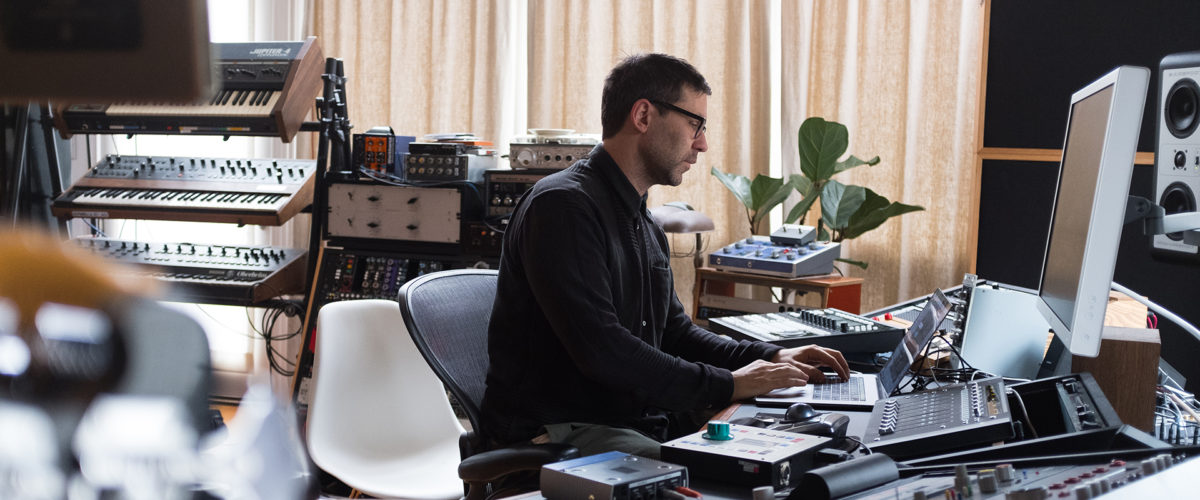
The sound that I get out of my iPhone is way better than the sound I got out of my first desktop PC, so in a way lo-fi was a bit of a political statement somehow, or at least an economic statement. But nowadays, it’s not. To be honest, proper lo-fi is more expensive than hi-fi.
It’s true. When you see distortion pedals selling for $1000… that’s confusing. I guess that just comes around to wanting a piece of history. That was the sound of the 1960’s fuzz that was on a amazing record. I get it. Tone is a real thing so if you want that fuzz then you have to spend loads of money. It does seem a little nuts sometimes though.
If you open up that fuzz pedal there’s often nothing in it at all. It’s just a few components, I’m told distortion is one of the easiest things to build. Time to start building!
You can have a completely crazy idea in your head and then you face the budget realities and see what you can do. I think what’s cool now is people coming up with these amazing visual shows. You don’t always need a lot of money to come up with those, but you do need great ideas and good synchronicity between the sound and music. You can MIDI up your own lights to really choreograph visuals to your show and make them interact with live sounds and stuff.
So I think it’s a cool time to be doing stagecraft right now, because I think it’s more open than it ever was in terms of it being relatively affordable tech to do really bold, striking things. You can build a show that’s super visual and interactive in a way that was really a pain in the arse back in the day. Computers are powerful enough that they can drive the sound and lights at the same time, or at least you can have two and they can properly sync up and stuff All those things were incredibly complicated for us trying to do shows in the early 2000s.
It’s sort of like learning how to build in stages. Working out how to do the bricks and mortar and then going, “Now I know how that basically works I can do some more ornate designs”. I’m kind of a believer that you need to know your history a little bit, and you need to know why things work.
I don’t think anyone can really move in a clean way through music. You just have to make it fit into your life and try to chase some vision of a weird dream and then some parts of it will stick. A friend of ours in Nashville who’s a writer came up with the idea that you have to be twice as good as you know you are, because by the time the pen hits the paper you’ll only be half as good. Do you know what I mean?
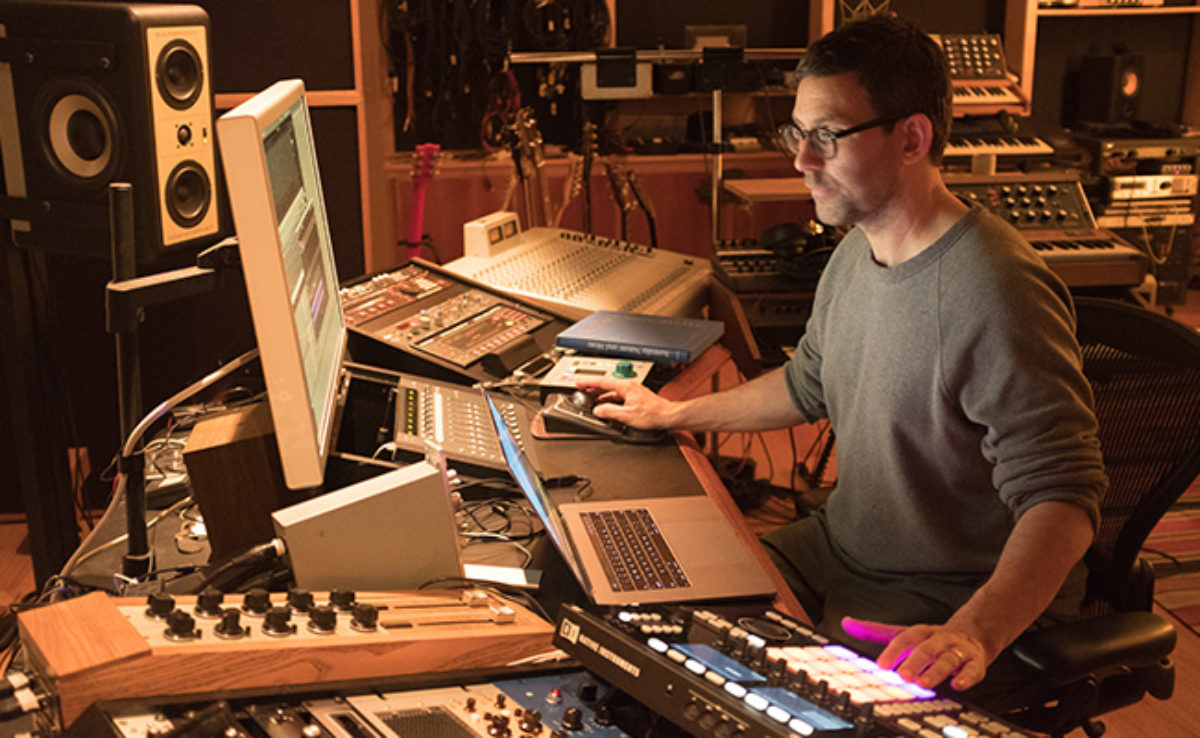
Yes, I totally know what you mean there. Everything I do, whether I’m trying to write a track in the traditional, composing sense, or make some software or do a video, or do a jam or even write a blog post. I have all these ideas and I’m like, “Right, let’s get down to do it”, and it’s just like, “Oh no, banana hands”.
I think part of moving quickly is actually really helping me, because I feel like I have all these tools around me and I’ve set up a happy workflow currently where I have my main computer hooked up to all of my old analogue outboard gear, as inserts through all of my two sound cards, so if I want to throw in a piece of old gear I can just use it like a plugin. I’m not using as many in the box plugins as a result… I’m going to the analog gear because I can perform with it. It’s my shaky hands making marks and not my office mouse hand.
I’m really big into this idea of music as a process rather than music as an activity that leads to a result. It’s like the results being the fruits of the process, but the process being the main thing. You just keep doing it and every now and again you’ll be able to pluck some fruit, but as long as you commit to the process, then…
That’s it. That’s a great way of looking at it. It’s this constant stream, you’re just dipping your cup into the stream.
Yes, and then putting some weird colourings into it and then pouring it back into the stream.
Yes, you’re sampling, it’s just a flow. It’s a great thing. The podcast is really good for me because it’s allowing me the luxury to have perspective. I was definitely cagey about sharing my ideas, which I really regret now.
Yes, same here. There’s a lot of ego involved in music, and you can’t really have too much shame in that. You want to not share and be the only guy to do that thing, or the first guy to do that thing, or the best guy to do that thing.
At the same time, it is exciting when people are pioneering something. In a way we’re always waiting for the next Aphex. We’re always waiting for the next pioneers to come along and shake us from our dogmatic slumbers so it’s exciting when people feel like they have this bright, shooting star kind of thing.
The podcast is a humble thing, it’s just me just having a nice chat with some people, and hoping that the listeners get a little bit of an insight into another way of doing things. There’s always something to be learnt. Everyone’s dealing with overlapping things, so I think if you’ve got an interest you can always walk away with something.
You can listen to Jamie Lidell’s new podcast here.
Check out the latest REAKTOR compatible plugins by Tim Exile here.
Check out Jamie’s exclusive sounds pack for Sounds.com here.
photo credits: Lindsey Rome








